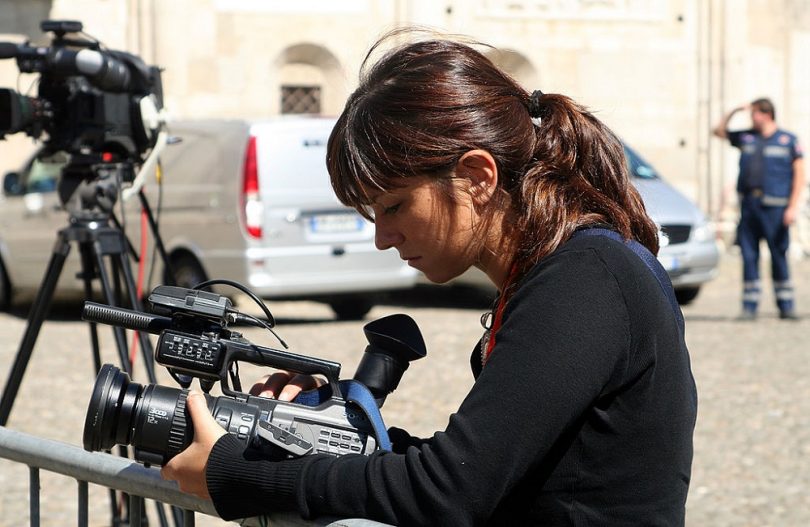Ask yourself if you really want to study journalism
I ask this sincerely: Why do you want to study journalism? Is it because you love writing? Are you interested in current affairs? Are you always the first person to discover a story? Are you looking to change or challenge people's perspective on a certain issue? Do you want to create a dialogue on 'taboo' issues, such as mental health? Do you have an opinion that you can get across in an interesting and engaging way? Want to explore the ethics of journalism?
There are so many questions you can ask yourself so you must know what it is you want to get out journalism degree. Studying journalism is not easy (like any degree) and can be slightly different to actually practicing journalism. If studying a three year course feels like a bit of a stretch for you then consider other options such as taking an NUJ course, completing internships, going into a full-time working position, starting your own projects and more.
It is not a prerequisite to study a journalism degree to become a journalist or get into a media related field. So please, research your options and know what you are getting yourself into.
It is imperative to look at universities modules options on their journalism course
I cannot stress how important it is to get onto UCAS and look at the universities website to see what types of modules are on offer. This will basically shape what you learn, how the course is taught to you and how you are assessed.
When I chose my course at my university, I saw that it was very good for and focused heavily on news writing, writing for the uni’s newspaper, theories in the media, specialisms (such as fashion, business and sport), work experience, creating contacts and practicing various multimedia skills.
Before applying I wanted to do more broadcast, but I am glad that I chose my course because it showed me that I was not as good at writing as I thought I was and challenged me to write better. Look carefully at each course so that you choose modules that will best suit your interests.

You have to come out of your comfort zone
Whilst studying journalism you will have to come out of your comfort zone (just like in the real world). Being approachable, interviewing people, transcribing, getting information and researching WELL does not come easily or naturally.
It is something completely new and you are going to have to force yourself to work towards time constraints, in a team, go places (do the arm and leg work) that you may not feel like going. You may be sent on random missions, such as finding someone who has been bitten by a pit bull in twenty minutes, then write the story in half an hour.
You will have to build an open and warm, trust worthy personality so that people can open up to you easily, just let your passion lead you.
If you are serious about pursuing a career in journalism start acting like a journalist now
If you decided that you want to do a journalism degree then start becoming the journalist you want to be and create the content you want to see. Don’t rely on your course to help you create a portfolio.
Practice writing, and practice some more. Share you work. Write for different publications. Start your own blog or magazine. Read a lot. Develop tough skin. Be secure in yourself, your ability and topics of interests. Networking. Utilise social media. Intern.
A degree is just the basis for your career, if you want to stand out and excel you must do more. Be consistent with your work, take yourself (your brand) seriously and others will do the same.
Start developing new skills and expanding your knowledge
When studying a journalism degree you are also going to learn some new skills. You will most probably learn how to use programmes such as Adobe InDesign, Premier pro and Photoshop. You’ll also learn technical skills such as shorthand, how to subedit, live blog even grammar and researching skills—as basic as it seems.
In your spare time, or over the holidays take some time to practice these skills. If you are aware of how to use specialist programmes and other journalistic skills you will have a head start by the time you get to university – which is always a bonus!
In my first year of journalism, we were forced to do a news quiz every week and if we didn't at least get an 8 or 9 out of ten then we know we failed. You don't want to be the only student in the class getting a 2/10.
That's just embarrassing. Watch the news consciously and critically, be engaged in current affairs, have intellectual conversations and cultivate your own opinion.
You want to be well-rounded journalist so make sure you know how to do a bit of everything, and do it well!









